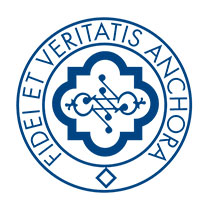What they are
Associations are organisations made up of several people to achieve clearly defined purposes, as a rule altruistic and idealist. The presence of a more or less extended nucleus of members is therefore crucial and their willingness paramount. Associations fall into two broad categories:
- Associations recognised as legal persons are those to which the competent authorities (prefecture of the province where the entity is headquartered) has granted recognition, which is obtained by registration in the register of legal persons.
- Unrecognised associations are those that have not applied for recognition or at any rate have not received it.
Recognised Associations
For the setting up of recognised associations a public deed is needed; this is also required for changes or additions to the memorandum and articles of association that govern the life and activities of the association and to achieve the status of non-profit organisation.
The public deed, thanks to the prior control on legality made by law by a notary, contains valid reliable data and therefore allows the entity to acquire legal personality by registration in the register of legal persons: this results in complete separation of the assets of the association from those of the individual members, as well as of other persons. Members, then, meet the obligations of the institution only within the limits of the membership fee and the additional contributions bestowed, and cannot be asked by creditors of the association to pay debts incurred by it. In turn, the personal creditors of individual partners cannot claim on the association.
Recognised associations may also take advantage of special benefits provided by law, such as the ability to apply for contributions from public entities; they may also receive inheritances and gifts or buy real estate. By complying with the necessary legal requirements, they can also become non-profit organisations and take advantage of the associated benefits.
For their subsequent regulation, too, there are specific requirements and limitations in terms of administration and representation, general meetings and resolutions of members, as well as the resignation and expulsion of members, rights to common assets, and rights of exchange, dissolution and devolution of property.
Unrecognised Associations
Unrecognised associations are usually composed of a number of associated persons who have not wanted to apply for recognition or who have not received it or for whom the proceedings are still ongoing.
Unrecognised associations are not “legal persons”, and therefore they and the individual members do not enjoy the benefit of full separation of assets as for recognised associations. Nevertheless, even in unrecognised associations there is a measure of separation of the assets of the institution from those of its associates – so-called “imperfect” economic independence – in that debts are paid first from the common fund of the association and then by those who arranged and carried out the operation in the name and on behalf of the institution.
For as long as the association lasts, individual members cannot request the division of the common fund and, if they resign or are excluded, they cannot demand the return of membership dues and contributions.
Unrecognised associations are not subject to specific requirements as to form or the contribution of certain categories of assets (e.g. real estate). In general, though, members are not precluded from adopting the form of an authenticated private deed or public deed, which are moreover compulsory, along with a registered private deed and other conditions and requirements, should the association want to enjoy the special benefits relating to the status of non-profit organisation, or in any case join those entities that can take advantage of the tax benefits generally provided to the so-called third sector.
From the point of view of regulation, unrecognised associations enjoy very wide freedom, as the entity is governed by agreements among its members, who can therefore arrange operations as they see fit, within the law. For this reason, contact should be made with a notary to avoid putting in place arrangements that are fragile or easily circumvented or the source of quarrels and conflicts. In any case, their greater structural flexibility makes these entities suitable for pursuing many different purposes: indeed, political parties, trade unions, cultural centres, sports clubs, and so on are usually unrecognised associations.






